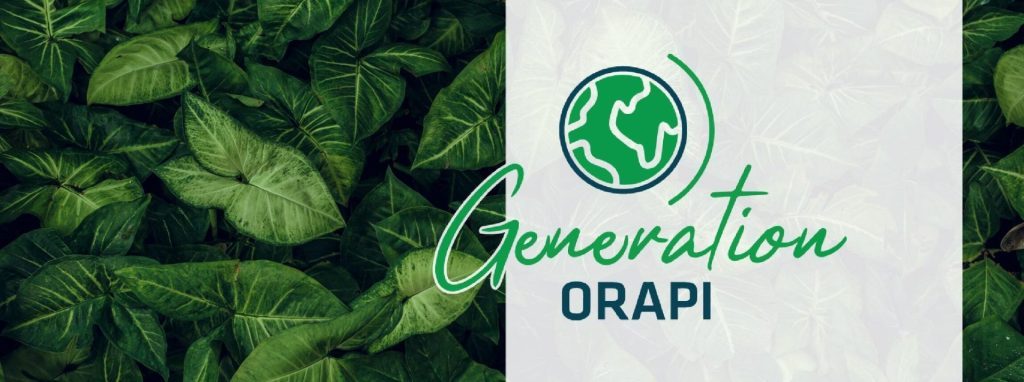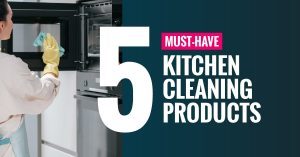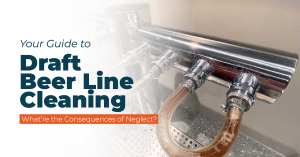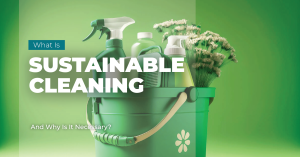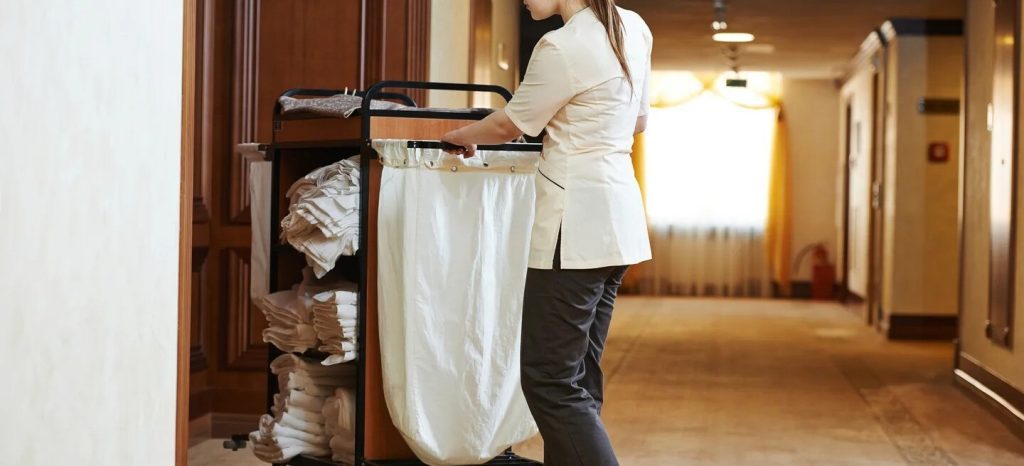
With increased ecological concerns, the hospitality industry is swiftly adopting eco-friendly housekeeping practices. Environmentally friendly housekeeping has become one of the essential elements of this change in direction whereby hotels and resorts aim at reducing waste and conserving resources, making hotels a healthier place to stay for guests and employees alike. In addition to saving costs, sustainable practices attract ecologically sensitive guests who would prefer accommodations that are environmentally friendly.
Below, we expand on the top 10 eco-friendly housekeeping practices businesses within the hospitality industry can adopt that will benefit themselves, the guests, and the environment.
The Ecological Impact of Traditional Housekeeping
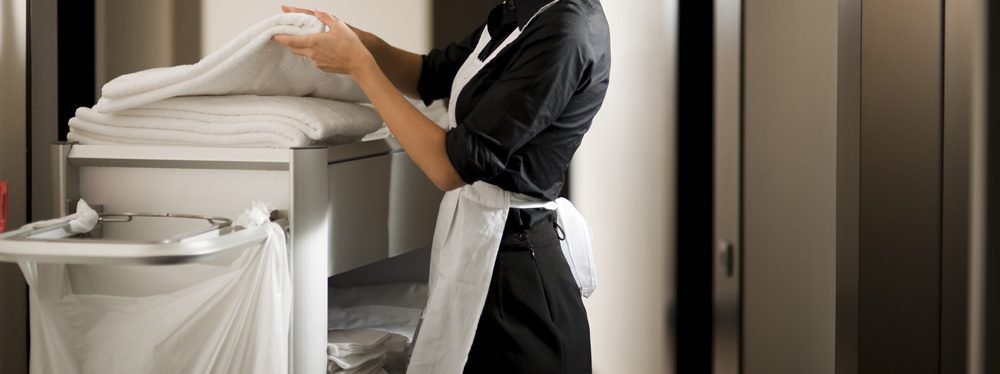
Traditional housekeeping is usually practiced at an environmental cost. The use of practices such as water-intense cleaning, chemical-laden products, and high-energy equipment depletes resources, pollutes the atmosphere, and generates waste. These toxic chemicals can, in turn, seep into the water system from conventional cleaners and damage not only ecosystems but also public health. Similarly, the consumption of disposable supplies, single-use plastics, and over-washing of towels and linens generate tons of waste. Consequently, it goes without saying that these are some of the most serious issues to address for the development of a truly greener hospitality industry. In this manner, hotels would reduce their carbon footprint through reduction in reliance on unsustainable practices, which would, in turn, improve environmental health in the development of a cleaner and safer world.
Eco-friendly Housekeeping Practices
1. Using Green Cleaning Products: A Safer Alternative
One of the easiest but most effective changes a hotel can make to sustainable practice is switching to green cleaning products. Eco-friendly cleaners are normally biodegradable and free from toxic chemicals, which easily turn out to be a safer alternative for guests and staff alike. Such products prevent harmful residue on surfaces from doing damage and help prevent pollutants from entering local water systems.
Top eco-labels, such as EcoVadis and ECOCERT, ensure that the products passed through rigid environmental standards, thus making it easier for hotels to choose responsible options. Others are transitioning to refillable dispensers of amenities like soap and shampoo, reducing plastic waste coming from single-use bottles.
2. Reduce Water and Energy Consumption
Water and energy conservation is very important in housekeeping. Hotels can do their part by installing low-flow showerheads and faucets that save water, having energy-saving washing machines; housekeeping staff can assure proper usage of resources by running machines only when these are full and by air-drying linens whenever appropriate.
LED lighting and energy-efficient vacuums further reduce electrical consumption, thus allowing the hotel to reduce its carbon footprint. All these resource-conserving measures help decrease operational costs and, therefore, make sustainable practices financially viable in the long run.
3. Reduce Waste in Housekeeping
Waste minimization is another nook of greener housekeeping. Replacement of disposable items like plastic bags and disposable cleaning clothes with reusable materials such as microfiber cloths and biodegradable garbage bags contributes to less landfill waste.
Besides, many hotels have mounted in-room recycling bins and encouraged guests to segregate plastics, glass, and paper. It is also possible to compost organic wastes, such as food scraps from room service, as a means of reducing wastes while improving soil quality. Second, through waste management, a hotel can be sure it is showing its commitment to the circular economy by reducing its impact on the environment in tangible ways.
4. Adopt Sustainable Linen and Laundry Solutions
Doing laundry is a highly resource-intensive operation that requires massive volumes of water, energy, and detergent. Most hotels today encourage guests to reuse their towels and linens whenever possible, owing to their efforts to reduce the environmental impact of such laundry.
Biodegradable detergents and energy-efficient washers further reduce environmental impact. Washing in cold water when necessary and using the optimum load size allows hotels to save energy and water. This also extends the life of linens since it is washed less, reducing replacement needs, which means lesser waste of textiles and cost savings to the hotel.
5. Use of Resources and Supplies Efficiently
Eco-friendly housekeeping puts an emphasis on the least amount of wastage of resources; for example, paper and plastic. Hotels can do this by buying items in bulk with a minimum of packaging, use reusable products, and conduct an inventory check to avoid losses. Housekeeping departments may use refill dispensers for toiletries, which reduce the use of single-use plastics. Since such vendors provide options that are green, procurement practices meet the hotel’s goals of sustainability. This supports the green supply chain and lessens the general environment of the hotel.
6. Housekeeping - Green Training
For the implementation of any successful program, education about housekeeping on sustainable practices is crucial. Green training programs introduce workers to eco-friendly methods. Any methods from using safe products for cleaning to waste management depend on this category. The training should cover reasons for resource conservation, avoiding overuse of supplies, and handling chemical use according to greener methods. Also, this will build a culture among the housekeeping staff for environmental stewardship, aiding in morale improvement since these workers feel they are contributing something positive in the workplace and toward the world. Providing knowledge and training to staff about sustainability policies ensures that sustainability practices are inculcated right throughout the hotel.
7. Guest Participation in Sustainability Practices
Guests are playing a critical role in hotel sustainability performance. Encouraging guests to reuse towels and linens is an effective strategy; however, the way it is requested can build a significant difference. It has been proved that guests are more willing to do something when they believe others already have. For instance, instead of communicating “25% of guests do not reuse towels,” a message like “75% of guests choose to reuse their towels” uses social proof and will make the guest feel they are part of a community effort.
8. Consider Eco-Friendly Technologies in Housekeeping
New technologies are fast improving environmental housekeeping practices at hotels. Ozone laundry systems, for example, clean linens with minimal water and at lower temperatures hence use up to 90 percent less energy. This type of automation system also permits energy conservation in lighting and climate control in unoccupied rooms while high-efficiency vacuums and washing machines use less electricity and water. Adoption of environment-friendly technologies not only reduces operating costs but also demonstrates the hotel’s concerns for greening the environment to consumers sensitive to ecological issues.
Challenges in Implementation
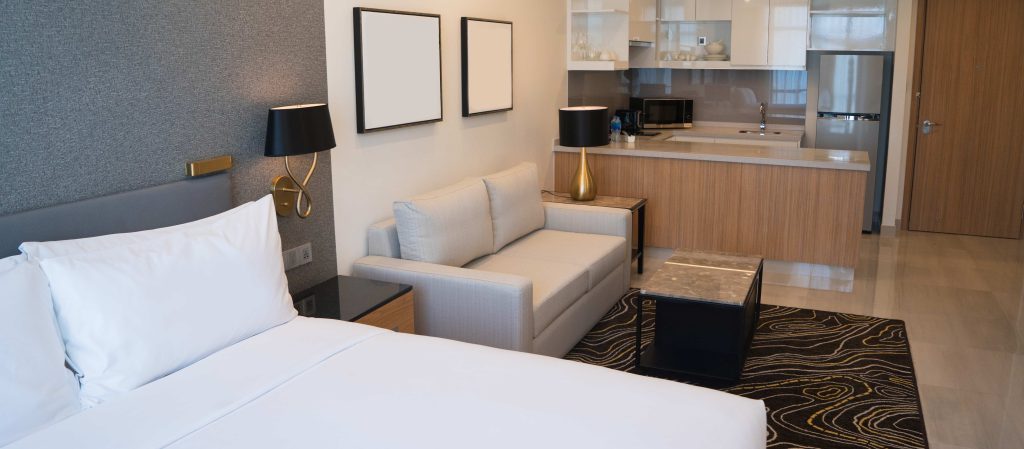
There are indeed drawbacks to adopting greener housekeeping practices. On the one hand, most eco-friendly products and sustainable equipment require an initial investment, as some of these items might be more expensive than products manufactured from traditional materials. Most green cleaning products, energy-saving machines, and reusable items like microfiber cloths are a bit more expensive at purchase than their equivalents in conventional materials, which makes some hotels resist the move to greener alternatives. Moreover, there is also the need for ecological housekeeping training in handling new products and using advanced machinery with environmentally friendly procedures, which sometimes can be time-consuming for those who have been used to conventional ways.
This may also entail frequent adjustments and judicious management of resources so that sustainable practices are indeed applied without affecting the quality of the services. Hotels should also establish monitoring mechanisms related to resource use, waste disposal, and green practice compliances. For those smaller or budget-conscious hotels, such initial monetary and time investments may be considered daunting. The fact, however, is that many consider these upfront costs offset through long-term savings from reduced water and energy costs and supply expenses. Furthermore, this provides them with greater guest satisfaction and brand reputation, attracting more and more eco-conscious tourists. Hence, though challenging, transition to sustainable housekeeping yields substantial operational and reputational benefits long term.
Future Trends

Developments like artificial intelligence, renewable energy systems, and innovative waste management make sustainable hospitality increasingly viable.
In the future, artificial intelligence will make much more important contributions to sustainable housekeeping by optimizing resource management beyond what is currently technologically possible. Such AI-driven systems can also allow a hotel to forecast inventory needs, run maintenance schedules more efficiently, and even adjust housekeeping dynamically according to occupancy levels to assure resources are being efficiently used. For example, AI can analyze usage patterns to determine cleaning frequencies, thus providing service only when needed, rather than on a schedule. In this regard, new innovations could help the hotel business minimize waste and save more resources.
Meanwhile, hotels have started using automated dispensers and dosing systems for proper dosages of cleaning products, laundry detergents, and toiletries alike. These systems dole out only that amount of product needed for any one task, reducing the possibility of overuse and helping to cut down on waste. This saves money but also prevents chemical runoff into the environment, allowing for a cleaner and greener operation. In the future, AI and automation will surely be an integral part of managing hotel operations in a sustainable manner and thus opening new thresholds for eco-friendly practices across the entire sector.
Conclusion
Eco-friendly housekeeping practices will rest on a win-win basis since it promotes the well-being of the environment while at the same time benefiting the bottom line through improved guest satisfaction and reduction in operational costs. Commitment to sustainability not only pays respect to the environment but also boosts a hotel’s brand image in view of environmentally concerned tourism. By means of waste reduction and conservation of valuable resources, hotels are able to take active participation in building a more sustainable future and will, together with both staff and guests, reap the benefits of responsible hospitality. As more hotels continue to put these practices into place, they set a good example for the rest of the industries in trying to change the world to a greener and cleaner place. Supported by mounting awareness over climate change, available technologies shifting guest preferences, and above all, the dire need to take care of the environment, eco-friendly housekeeping is now fast becoming the norm for hospitality.


